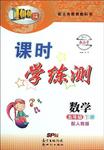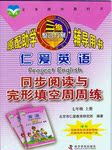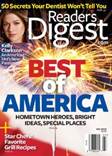题目内容
Spain and Greece are now more popular than France or Italy. Travel to both places is cheaper in early summer. It is also cheaper to go by train than to go by plane, and it’s easier to get a ticket in May than in June, July or August.
Most people think that Greece is prettier. Others say Spain is hotter and more expensive. Certainly hotels in Spain are far more expensive than ones in Greece, but also they are more comfortable. Greece is much more interesting and it is far quieter than Spain.
Spain is nearer and one can get there more quickly. But Spain can be very crowded.
Some people feel that Greece is more beautiful, the air is cleaner and the sea is bluer. Also the food is simpler in Greece.
“Which Holiday?” prefers(推荐) Greece this summer, Greece is the better choice.
根据短文内容,判断正(T)误(F)。
小题1:Spain and Greece are now less popular than France or Italy.
小题2:Hotels in Greece are much more expensive than ones in Spain.
小题3:People can get tickets more easily in May.
小题4: If you like too many people, you should go to Spain for vacation
小题5:“Which Holiday?” prefer people to go to France this summer.
Most people think that Greece is prettier. Others say Spain is hotter and more expensive. Certainly hotels in Spain are far more expensive than ones in Greece, but also they are more comfortable. Greece is much more interesting and it is far quieter than Spain.
Spain is nearer and one can get there more quickly. But Spain can be very crowded.
Some people feel that Greece is more beautiful, the air is cleaner and the sea is bluer. Also the food is simpler in Greece.
“Which Holiday?” prefers(推荐) Greece this summer, Greece is the better choice.
根据短文内容,判断正(T)误(F)。
小题1:Spain and Greece are now less popular than France or Italy.
小题2:Hotels in Greece are much more expensive than ones in Spain.
小题3:People can get tickets more easily in May.
小题4: If you like too many people, you should go to Spain for vacation
小题5:“Which Holiday?” prefer people to go to France this summer.
小题1:F
小题2:F
小题3:T
小题4:T
小题5:F
小题1:本文的第一句提到希腊和西班牙比法国和意大利更受欢迎,故本题判断是错误的,故本题的答案是F。
小题2:在第一段第五行提到在西班牙的旅馆比希腊贵的多,故本题判断是错误,故本题的答案是F。
小题3:第一段第三行提到在五月份买到票更容易,故本题判断是正确的,故本题的答案是T。
小题4:第二段第一行提到西班牙人很多,太拥挤了,故本题的判断是正确的,故本题的答案是T。
小题5:本文最后一句提到Which Holiday?”今年夏天推荐希腊,而不是法国,故本题的判断是错误,故本题的答案是F。

练习册系列答案
 百年学典课时学练测系列答案
百年学典课时学练测系列答案 仁爱英语同步练习册系列答案
仁爱英语同步练习册系列答案
相关题目






 social, having rich feelings, friendly but complaining
social, having rich feelings, friendly but complaining hard, ordered, but keeping old
hard, ordered, but keeping old brave, confident, but careless
brave, confident, but careless peaceful, having a good manner, a business head but cold emotion
peaceful, having a good manner, a business head but cold emotion active, outgoing, popular but selfish
active, outgoing, popular but selfish fascinating(迷人的), thoughtful, but doubtful
fascinating(迷人的), thoughtful, but doubtful active, self-confident, wise but proud and angry
active, self-confident, wise but proud and angry  kind, helpful, elegant but sad
kind, helpful, elegant but sad  wide, clever, warm, unsatisfied but slick(圆滑的)
wide, clever, warm, unsatisfied but slick(圆滑的)  confident, helpful, happy, but dressy
confident, helpful, happy, but dressy realistic, loyal(忠诚的), practical
realistic, loyal(忠诚的), practical hard, honest, simple, lucky but careless
hard, honest, simple, lucky but careless